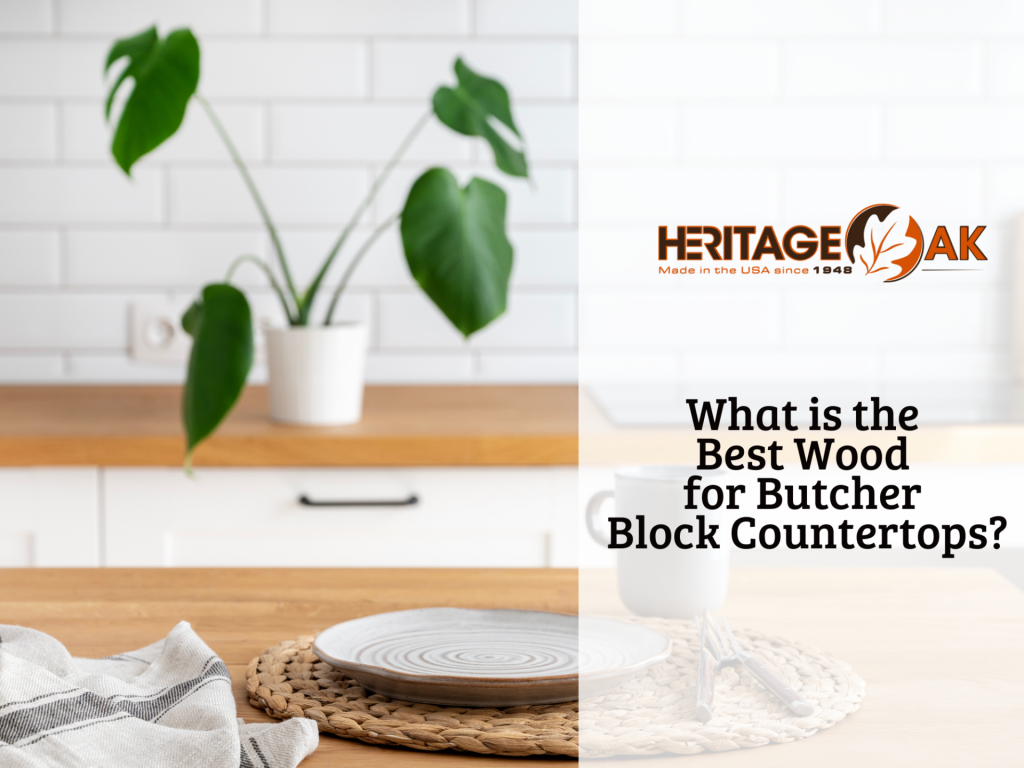
In our previous blog, we focused on the question “Are Butcher Block Countertops Durable?” Today, we want to spotlight how the best wood for butcher block countertops can affect its durability. Choosing a hardwood for the butcher block countertop is an important decision as it has a significant impact on the finished product. Furthermore, it affects more than just the overall visual aesthetic of a kitchen. While there are other factors that contribute to the durability of butcher block countertops, the hardwood species has the most influence.
2 of the Best Locally-Sourced Ozark Hardwoods and Their Characteristics
White Oak Hardwoods
- Coloration: Neutral olive/beige hues to form a yellow-ish undertone
- Janka Scale Rating for Durability: 1360
- Details: The most common and strongest domestic hardwood for butcher block countertops is white oak. With a simple, straight grain and naturally light color, white oak countertops are both visually stunning and extremely durable. White oak is also resistant to water damage and abrasion while hiding wear and tear like scratches, making it suited for high-traffic use. Furthermore, its naturally light coloration helps reflect light to brighten the room.
Red Oak Hardwoods
- Coloration: Salmon and pink-ish hues to form a red-ish undertone
- Janka Scale Rating for Durability: 1290
- Details: Whether it’s flooring, stair parts, cabinetry, or countertops, red oak hardwoods are used as the industry standard for durability. Red oak hardwood is similar to white oak with a few key differences such as highly-visible, short, dynamic grain and salmon-pinkish hues. Additionally, red oak is more water-sensitive than white oak which makes it great for staining to match an established aesthetic.
Read more about the characteristics of White and Red Oak Hardwoods!
Find the Best Wood for Butcher Block Countertop
At Heritage Oak, we take great pride in our hardwood products. Fom using sustainable, locally sourced hardwoods from the Ozarks to high quality craftsmanship and products. Our white and red oak butcher block countertops can be custom made to your specifications. If you have any questions about our butcher block countertops, please don’t hesitate to ask our hardwood experts! We would be happy to guide you through the pros and cons of butcher block countertops to see if they are the right choice for your needs.
Additional Questions:
How Thick Should Butcher Block Countertops Be?
Most butcher block countertops are between 1 ½ and 2 inches thick. The majority of thicker cuts are specifically custom ordered and are more expensive. It’s not recommended to request butcher block countertops thinner than 1 inch as this allows for many years of use after refinishing.